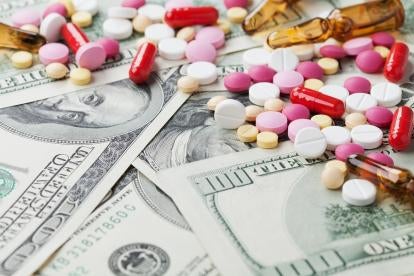On Friday, July 9, 2021, President Biden issued a broad Executive Order that could have significant implications for businesses across a broad spectrum of industries, including the pharmaceutical industry. As it relates to the pharmaceutical industry, the “Executive Order on Promoting Competition in the American Economy” primarily focuses on lowering drug costs to American consumers.
Overview
The Executive Order takes a “whole-of” government approach, setting forth 72 initiatives by numerous federal agencies, with the stated aim of addressing competition issues nationwide. With a focus on what it regards as “excessive market concentration,” the Executive Order targets specific industry segments, including labor markets, agricultural markets, broadband providers, Internet platform industries, healthcare markets (including insurance, hospital, and prescription drug markets), repair markets, and U.S. markets directly affected by foreign cartel activity.
Significantly, the Executive Order does not immediately establish any requirements or prohibitions for businesses. Instead, it directs and encourages federal regulators to consider policy initiatives and craft new rules to implement the competition policy goals of the Biden Administration. This process will not happen overnight, and businesses should have an opportunity to participate in the public comment process where agency rulemaking is concerned.
Pharmaceutical Industry Priorities
As it relates to the pharmaceutical industry, the Executive Order says its primary focus is on lowering drug costs to American consumers. In that vein, the Executive Order directs the Department of Health and Human Services (HHS) and the Federal Trade Commission (FTC) to take actions with a particular focus on facilitating additional competition from generic drugs and biosimilars. Set forth below are some of the mandates found in the Executive Order as it relates to the pharmaceutical industry:
-
The Executive Order encourages the FTC to ban “pay for delay” patent settlement agreements and similar agreements by rule. This follows the FTC’s recent announcement that it voted to “reinvigorate” its rulemaking procedures in an effort to promote more robust competition. While the rulemaking aspect of this directive is new, the FTC has been actively challenging these types of patent litigation settlements for years in the courts and through its administrative tribunals.
- The Executive Order directs HHS to coordinate with other federal officials to ensure the patent system does not unjustifiably delay generic and biosimilar competition and requests a report within 45 days describing any relevant concerns of the Food and Drug Administration.
- The Executive Order directs HHS, with the Chair of the FTC, to identify and address efforts that impede generic and biosimilar competition, including deceptive statements about the safety or efficacy of generic drugs or biosimilars. In addition, the Executive Order requires HHS to continue to promote generic drug and biosimilar competition, including by:
(i) continuing to clarify and improve upon the approval framework for generic drugs and biosimilars, making the process more transparent, efficient and predictable;
(ii) supporting adoption of biosimilars by healthcare professionals by providing education materials and communications to improve understanding surrounding these and other interchangeable products; and
(iii) otherwise facilitating development and approval of biosimilar and interchangeable products.
- The Executive Order mandates that HHS work with the Centers for Medicare and Medicaid Services to prepare for coverage of interchangeable biological products as well as payment models that will support the increased utilization of such products.
- The Executive Order directs HHS to issue a comprehensive plan within 45 days of the Order to combat high prescription drug prices and price gouging as well as to enhance domestic pharmaceutical supply chains.
- The Executive Order directs FDA to work with states and tribes to import less-expensive prescription drugs from Canada pursuant to the Medicare Modernization Act of 2003.
- The Executive Order backs legislative proposals addressing drug prices, including reforms that would allow Medicare to negotiate drug prices and impose inflation caps, among other related reforms.
What Does this Mean for the Pharmaceutical Industry?
It will likely take many months, if not years, for the full implications of the Executive Order to unfold. Because many of the Executive Order’s directives are largely consistent with past agency efforts in the pharmaceutical industry, it may be that the Executive Order’s ramifications will not come as a surprise to industry participants. That said, the Executive Order could prompt more aggressive intervention by federal regulators than in past Administrations, and certain of its commands for specific agency actions could have more immediate effects on the pharmaceutical industry.




 i
i


